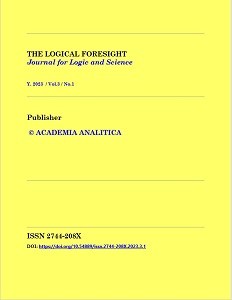Aristotle's First Philosophy as Analytical Epistemology
Aristotle's First Philosophy as Analytical Epistemology
Author(s): Nijaz IbruljSubject(s): Metaphysics, Epistemology, Logic, Ancient Philosphy, Analytic Philosophy
Published by: ACADEMIA ANALITICA – Društvo za razvoj logike i analitičke filozofije u Bosni i Hercegovini; Univerzitet u Sarajevu – Filozofski fakultet
Keywords: substance; epistemology; Aristotle; First Philosophy; conversion; logic; metaphysics; analytical epistemology;
Summary/Abstract: We analyze metaphysical foundations of the logical and epistemological construction of knowledge in Aristotle's First Philosophy. The possibility to define this construction as analytical epistemology is deduced from the fact that Aristotle used the term substance (ousía) in many equivalent expressions and different semantic roles, but with the same meaning. The basis for that is a semantic convertibility (antístrephein) of the concept of substance (or "what is", or the "essence" of being) in each of the fields of knowledge. Here we have listed the four most general aspects of the meaning of the term substance ( ousía) and expanded them to ten aspects in their specific use in the physical, logical, linguistic and ontological domains. Because of all of the above, we define Aristotle's First Philosophy (pròte philosophía) as analytical epistemology, as a system of knowledge and cognition based on a system of many senses of the term substance or conceptual conversions of the term ousía. In doing so, we observed these models of conversion of the meaning of the term substance through four predicative forms: synonymous, homonymous, paraonymous and analogical, which are based on four aspects of the concept of identity as logical sameness: that which is the same / identical (tò autón) because it belongs to the same genus (génos ), or belongs to the same / identical (tò omôion) species (eîdos), or has the same /identical (tò íson) number (aríthmos) or same/identical semantical relations (tò análogon). It can be seen that conceptual analogy (analogía) is the basis of all semantic transformations through which the concept of substance (ousía) goes in analytical epistemology.
Journal: The Logical Foresight – Journal For Logic and Science
- Issue Year: 3/2023
- Issue No: 1
- Page Range: 35-48
- Page Count: 14
- Language: English

